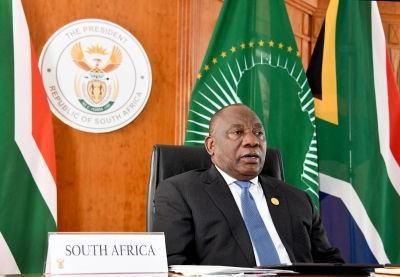

Cape Town, Aug 12 (IANS) South African President Cyril Ramaphosa has called for gender equality to be part of all policies and decisions, with Women’s Month underway in the country.
In his latest weekly newsletter on Monday, Ramaphosa urged women to take center stage in the upcoming National Dialogue process, set to be launched in Pretoria on Friday, stressing their central role in shaping the nation’s future, Xinhua news agency reported.
The National Dialogue aims to bring together individuals and organizations to find common ground and new solutions to the country’s challenges.
“Women are affected by every political, social and economic issue in the country. Likewise, every crisis, whether it is unemployment, crime, or climate change, affects women equally and, in some instances, more than men,” said Ramaphosa.
“Recognising that the lives of women are bound up with the future of the nation as a whole, we are counting on women’s groups and organizations to mobilize around the National Dialogue process,” he said.
The president emphasised the importance of diverse representation, noting that groups including rural women, urban female professionals and women with disabilities all face different realities.
The government has pledged gender parity across all structures supporting the process, with Ramaphosa insisting that no policy decision should be made “without due consideration of how it impacts women specifically.”
On Saturday, as the country celebrated Women’s Day, Ramaphosa reflected on the 1956 Women’s March, when more than 20,000 women of all races defied the apartheid regime’s oppressive pass laws.
“The march was a political protest against the apartheid-era pass laws, but it was also a powerful assertion of women’s agency,” said the president.
“It signaled that the women of South Africa, who were at that time relegated to the status of perpetual minors by the apartheid regime, would not be passive bystanders as their lives were profoundly affected by policies made about them, without them,” he added.
–IANS
int/rs
